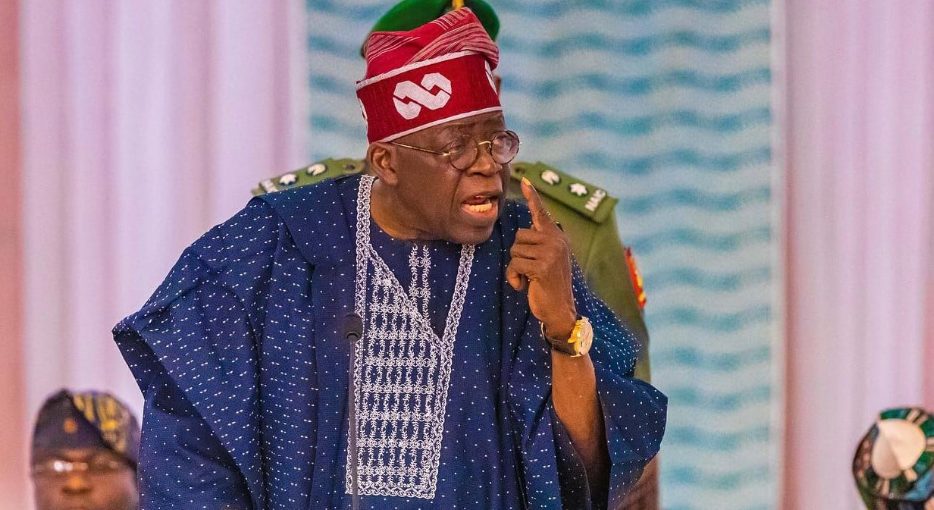Connect with us
Published
4 months agoon
By
dplanatenews
The tragic killing of ARISE News anchor, lawyer, and journalist Somtochukwu Maduagwu has thrown Nigeria into deep mourning and sparked widespread outrage across the media industry and the general public. In response, President Bola Ahmed Tinubu has strongly condemned the incident and directed security agencies to immediately hunt down the killers and bring them to justice.
This brutal incident has once again raised urgent questions about security in Nigeria, the vulnerability of journalists, and the urgent need to reform emergency medical response systems in the country.

Somtochukwu Maduagwu, popularly known as Sommie, was a promising Nigerian journalist, lawyer, model, and television anchor at ARISE News Channel. Colleagues described her as intelligent, vibrant, and passionate about storytelling. She had quickly risen to prominence on screen with her sharp analysis, clear presentation skills, and fearless reporting.
Sadly, her promising career was cut short in a most tragic and cruel manner. According to reports, Somtochukwu was attacked during an armed robbery incident at her residence in Katampe Extension, Abuja. She and a security guard were shot and later rushed to Maitama General Hospital. Eyewitness accounts claim that delays in medical treatment, reportedly due to the hospital requesting a police report before attending to her, contributed to her untimely death.
Her passing has not only shocked the media industry but has also reignited public anger over Nigeria’s healthcare and security failures.
Reacting swiftly to the tragedy, President Bola Ahmed Tinubu issued a statement condemning the killing. He described the act as “cruel, senseless, and unacceptable”, stressing that such attacks on innocent citizens, especially journalists who dedicate their lives to informing the public, would not be tolerated.
The President’s statement read in part:
“Nigeria has lost a bright, talented young journalist whose life and career have been cut short in her prime. I extend my heartfelt condolences to her family, her colleagues at ARISE News, and the entire media community. The Federal Government will not rest until her killers are found and justice is served.”
Tinubu has directed law enforcement and intelligence agencies to prioritize the case, intensify investigations, and ensure those responsible are brought to book without delay.

Nigeria’s First Lady, Senator Oluremi Tinubu, also expressed deep sorrow over the death of Somtochukwu. She described the tragedy as “painful and most unfortunate”, noting that the young anchor was an example of brilliance, resilience, and determination.
She emphasized that the killing of such a promising woman underscored the urgent need for Nigeria to address rising insecurity, especially in the Federal Capital Territory.
The Federal Capital Territory (FCT) Police Command has confirmed that it has launched a full-scale investigation into the killing. The Police Commissioner assured Nigerians that no stone will be left unturned in the manhunt for the perpetrators.
Security experts believe that the President’s directive will put pressure on the police, the Department of State Services (DSS), and other agencies to deliver quick results. Already, surveillance around Katampe and neighboring communities has reportedly been intensified.
However, the Nigerian public remains skeptical given the history of unresolved high-profile killings and robberies in the country. Many are demanding accountability, transparency, and swift prosecution to restore trust in the system.
The killing of Somtochukwu Maduagwu has triggered widespread outrage within Nigeria’s media industry and beyond. The Nigeria Union of Journalists (NUJ) described her death as “an attack on press freedom and democracy,” calling on the government to do more to protect journalists who face increasing threats.
Civil society groups and human rights activists have also joined the call for justice, stressing that the killing of a journalist cannot be treated as “just another crime.” For many Nigerians, this tragedy represents the daily insecurity ordinary citizens face, whether at home, on the road, or even in hospitals where life-saving treatment is often delayed.
On social media, the hashtag #JusticeForSomtochukwu has been trending, with thousands of Nigerians demanding justice and systemic reform.
Beyond the armed robbery itself, a key controversy in Somtochukwu’s death has been the role of Maitama General Hospital. Reports allege that the hospital refused to immediately treat her and the security guard she was brought in with, insisting on a police report before administering emergency care.
This is not the first time such incidents have occurred in Nigeria. For years, activists and medical experts have called for reforms to the Compulsory Police Report Policy, which has often led to delays in treating gunshot victims. In 2017, the Compulsory Treatment and Care for Victims of Gunshot Act was signed into law, making it mandatory for hospitals to treat victims without demanding police clearance. However, implementation has been weak, and hospitals continue to hide under “policy uncertainty” to deny treatment.
Somtochukwu’s death has therefore reignited calls for strict enforcement of the Gunshot Act, accountability for negligent medical workers, and reforms to Nigeria’s broken emergency response system.
Journalists in Nigeria have long faced threats, harassment, and violence. From covering insurgency in the Northeast to reporting on political corruption, many media workers operate under constant fear.
The killing of Somtochukwu highlights the double risk journalists face: the general insecurity plaguing Nigeria and the added danger of being a public figure. If journalists cannot feel safe in the nation’s capital, it raises troubling questions about the state of law and order in other regions.
Experts argue that unless the government takes concrete steps to improve security, strengthen the justice system, and support press freedom, Nigeria risks sliding further into a climate of fear where truth-tellers are silenced.
The death of Somtochukwu Maduagwu should not be allowed to become just another statistics in Nigeria’s long list of unresolved murders.
To honor her memory, several urgent actions must be taken:
